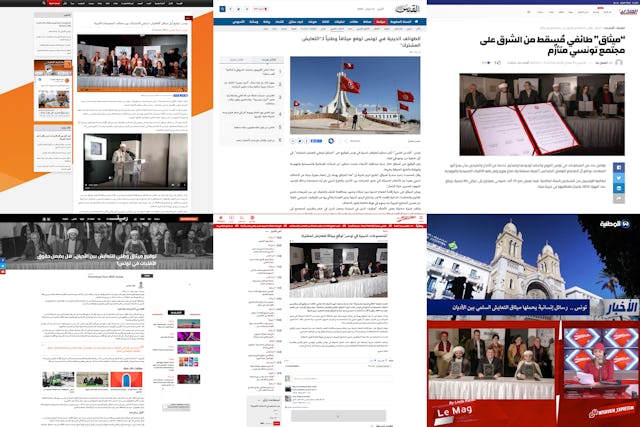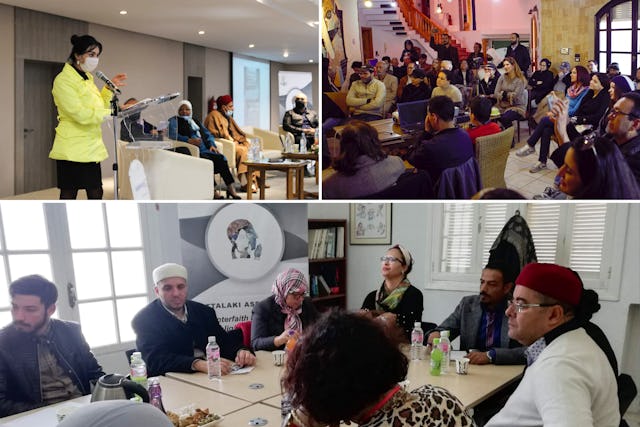TUNIS, Tunisia — At a recent press conference in Tunis, Tunisia, the faith communities of that country signed a jointly prepared “National Pact for Coexistence,” expressing their commitment to nurturing a more peaceful society.
“This initiative is a powerful sign of solidarity,” says Mohamad Ben Moussa of the Bahá’í Office of External Affairs. “The pact shows that we are united in our diversity and presents a refreshing view of our society, one that acknowledges a growing consciousness of our essential oneness.”
The press conference, which was also attended by a representative of the Ministry of Religious Affairs and civil society organizations, received wide media coverage in Tunisia and elsewhere in the Arab region. The event was arranged by the interfaith organization Attalaki, meaning “a gathering.”
The agreement, coauthored by representatives of Muslim, Christian, Jewish, and Bahá’í communities, articulates a set of shared values for the promotion of social harmony and is the culmination of close collaboration among religious and civil society leaders over the past several years.
One of the issues addressed by the pact is the vital role of women in the transformation of society.
Drawing on the Bahá’í principle of the equality of women and men, Mr. Ben Moussa states: “An important dimension of coexistence and a requirement for achieving a more peaceful society is the full participation of women in all spheres of life. We cannot achieve peace if half the population of our society is not recognized as equal to the other half.”
He adds: “This initiative places this essential truth foremost in our consciousness.”
The agreement also highlights the need for an end to rhetoric that incites hatred and casts segments of society as “the other,” and calls for enhancements to the country’s educational curriculum in order that young people may develop a greater appreciation for the diversity of Tunisian society.
The spokesperson for the interfaith initiative, Imam al-Khatib Karim Shaniba, stated that the pact aims to promote constructive societal patterns that are accepting of all religions and is a response to the voices that depict religions as being in conflict with each other. “Religious diversity enriches our society and provides wide scope for cooperation and coexistence,” he said at the press conference.
Since the pandemic began, faith communities in Tunisia have been seeking opportunities to address their fellow citizens with one voice. In April 2020, the Bahá’ís of that country, as part of their ongoing participation in the discourse on coexistence, joined with other religious communities and civil society organizations to deliver a message of hope and assurance to their society, calling for both science and religion to guide an effective response to the health crisis.
Source link






